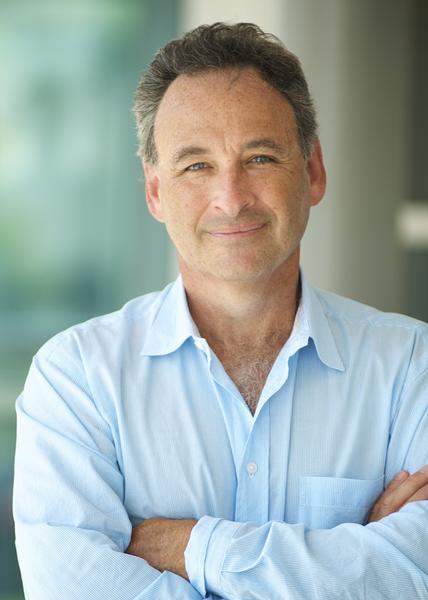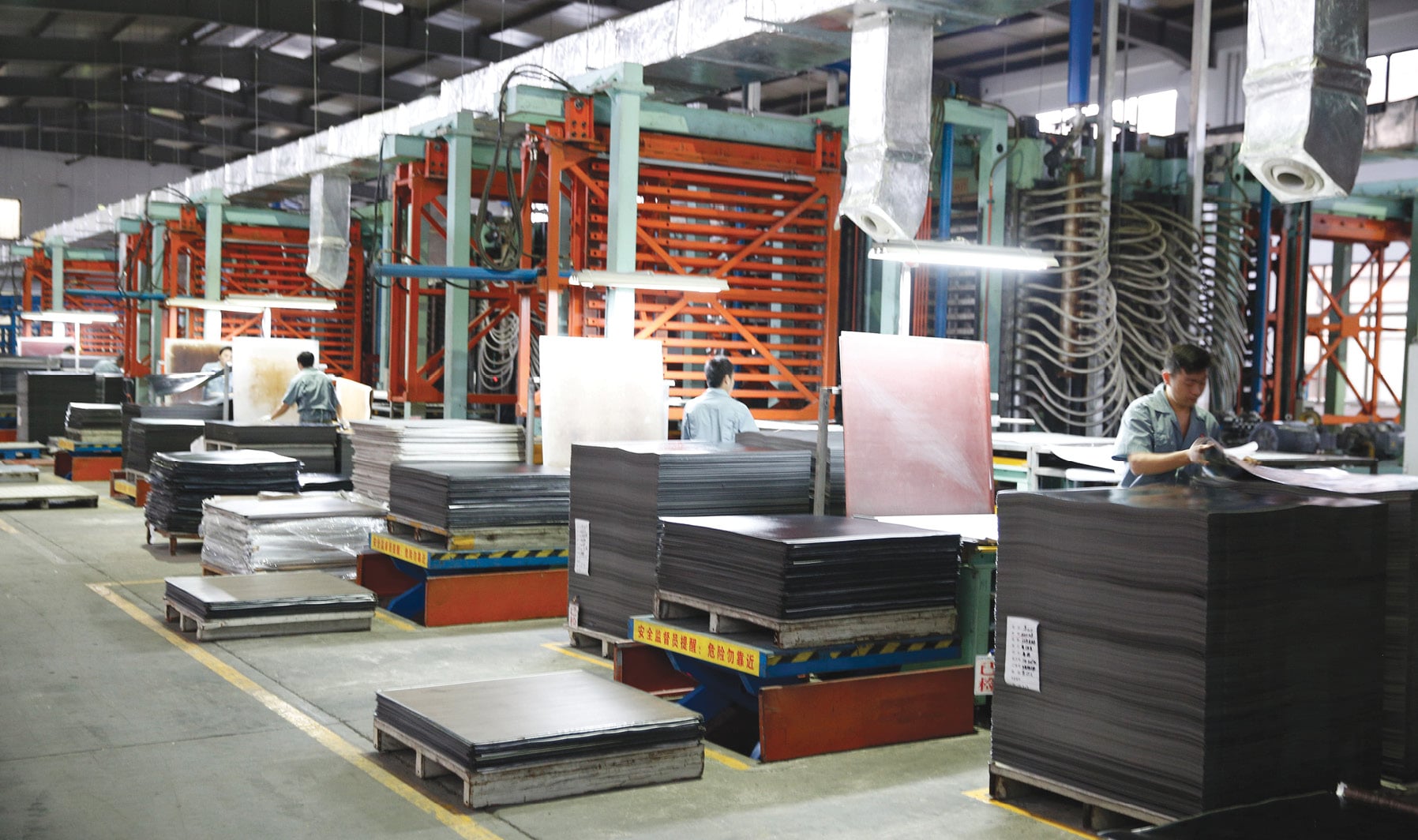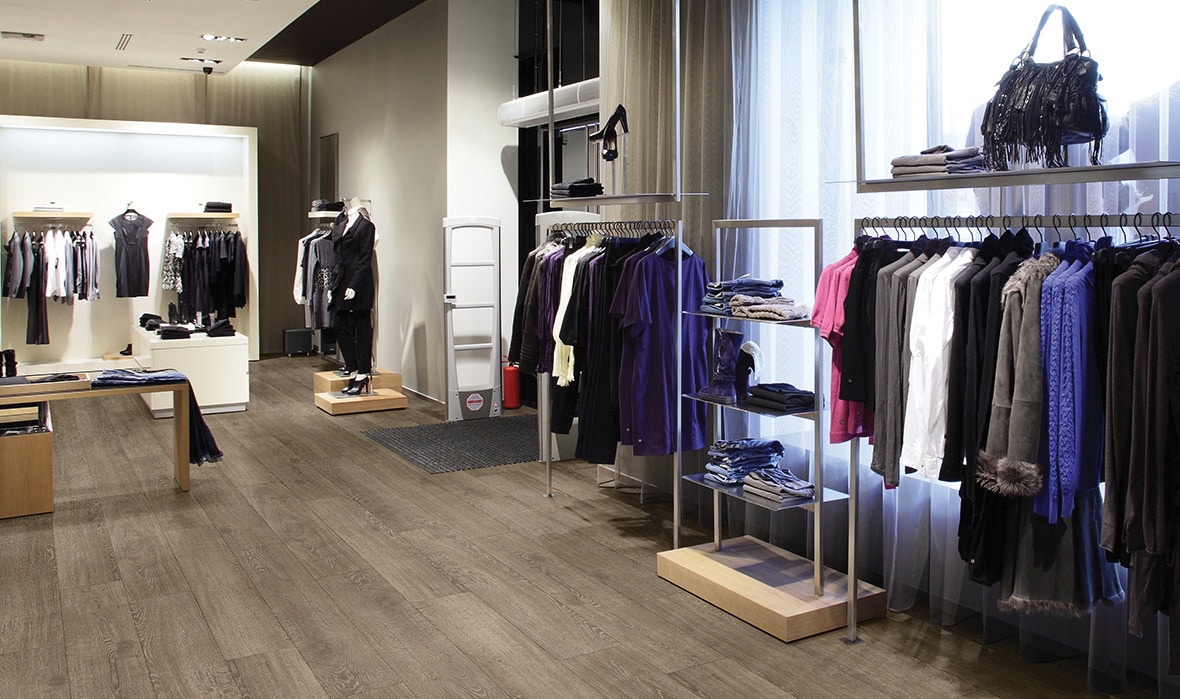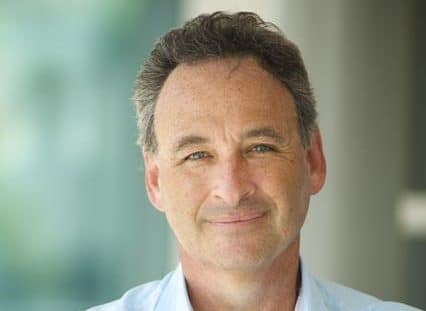
Halstead/Metroflor’s Harlan Stone knows sustainable business is good business. [Photo: Courtesy of Metroflor]
Harlan Stone looks back at what continues to make Halstead/Metroflor great more than a century later.
Harlan Stone loves being in the family business, now running an enterprise started by his great-grandfather as an immigrant in the U.S. in 1912.
Now Group CEO of Halstead/Metroflor, Stone is committed to making sure the world at his feet is safe for future generations—from his own children to future great-grandchildren, too. It’s part of why he continues to set an example for the flooring industry.
While Stone naturally cares about profits, he cares more about doing things the right way. “I could convert my entire program to all-natural that doubles the cost of my product and then double my prices, but it is not sustainable,” Stone says. The family man, who has a decades-long business relationship with his Asian manufacturer—also a family business—has made sustainability part of the business’ core. “The reason more people don’t practice sustainably is because they don’t focus on the next generation. They care mostly about current profits,” he says. “In a family business, you think multigenerational. It is a very powerful asset.”

[Photo: Courtesy of Metroflor]
Leading the Way
Halstead/Metroflor—now a global flooring empire—has long been an industry leader of low-toxicity flooring materials while keeping quality and durability at the forefront. “The most sustainable act is not wearing out,” Stone says. “If you wear out quickly then you have more entering the waste stream.”
The US-based company was the first major manufacturer to eliminate ortho-phthalate plasticizers from its resilient flooring products. “It’s the right thing to do—for our planet, our people, our users, and our manufacturers,” Stone says.
The road to sustainability poses many challenges, but Stone sees that as a good thing. “It has been my experience that things that are difficult are good. It is an opportunity for us to be innovative, creative, and different.” His focus on sustainability started more than 10 years ago when the company began using more recycled content, reducing water usage, and creating a healthier work environment for all employees.

Halstead/Metroflor was the first to develop a pure, homogenous vinyl floor tile in the U.S. [Photo: Courtesy of Metroflor]
The Move Toward Transparency
Transparency on all fronts is the essence of Halstead/Metroflor. “It may be the single greatest opportunity we have as a company,” Stone says. “It is an opportunity for us to show the world what can be done in the right way.”
The company brought on its first chief sustainability officer (CSO), Rochelle Routman, in July 2016, choosing her ultimately because of her passion and enthusiasm for sustainability. “We felt it was a good move to double-down on sustainability and product development (by hiring Rochelle),” Stone says. “It has been a great decision.”
Routman—who’s also chair of the Women in Sustainability Alumnae group and head of the Multilayer Flooring Association’s Sustainability Committee—says her time at Halstead/Metroflor has already been exhilarating. “This job has given me a voice in a very new category, and it is growing by leaps and bounds,” she says.
Since bringing on Routman, the company’s commitment to sustainability has increased dramatically, as they’ve begun using Declare Labels and Health Product Declarations on all products, among other initiatives. Transparency, Stone says, has been a welcome addition to the culture at Halstead/Metroflor. “There is a lot less of ‘who yells louder’ and a lot more of ‘how much are you willing to disclose?’ It is a much better conversation.”
That innovative spirit has led to Halstead/Metroflor leading the industry in many ways. The company was the first to develop a pure, homogenous vinyl floor tile, as well as one of the first to introduce LVT (luxury vinyl tile) in the U.S. The company has remained committed to leading that LVT charge with new products and designs, and continues to have the largest assortment of LVT in the industry today.

[Photo: Courtesy of Metroflor]
A Global Example
While it was a smart move, Stone says becoming a transparent company wasn’t easy. For starters, Halstead/Metroflor manufactures most of its products in Asia—a tradition that began in the 1960s when Stone’s father traveled to Japan in search of superior products.
The first hurdle was convincing their Asian partners of the value of sharing their business practices. Stone says there was a natural tendency to protect business secrets, so to speak, but as younger generations came on board, the benefits of being honest and open outweighed any perceived risks.
The company also had to examine its material suppliers to make sure everyone down the production line was using sustainable manufacturing methods. “There are a lot of questionable manufacturing practices in Asia as well as in the U.S. and Europe. We had to be thorough and make sure all the way down the line it was sustainable,” Stone says.
Both Stone and Routman see transparency as an opportunity to lead the conversation on sustainable manufacturing in Asia. “The social responsibility aspect of what is going on in factories in China is something we can communicate that others cannot,” Routman says. In her position as CSO, she has brought Chinese partners to the U.S. to network and share business practices, while using social media to spread the word about sustainable manufacturing in Asia.
Halstead/Metroflor’s relationship with their Chinese manufacturing company is built on trust, ultimately knowing how the company operates inside and out. It’s the kind of partnership Stone is eager to broadcast to others. “The world was built on international trade, and it will continue to grow throughout our lives and our children’s.”
“The most sustainable act is not wearing out. If you wear out quickly then you have more entering the waste stream.”
—
Harlan Stone, Halstead/Metroflor
Moving Forward
The company is currently working on becoming the first manufacturer in the world to get a JUST Label for a Chinese factory. “This is a unique opportunity for us to separate ourselves from the people sourcing in China,” Stone says. “We don’t source in China, we manufacture.” The difference, Stone says, is knowing how things are produced, rather than just accepting the product that is being constructed.
That commitment to working together and to continue making better products continues today. Halstead/Metroflor is currently working on introducing new materials, including organically based compounds, into their product line. The company is also working to establish environmentally responsible standards with participating organizations and retailers. As Stone says, the possibilities are endless.
How They Stay Green
- Entire Aspecta line, over 200 designs, have Declare labels and Health Product Declarations
- Halstead/Metroflor holds a coveted platinum NSF/ANSI 332 certification—a first in the resilient flooring industry—for its Aspecta Five products, as well as Gold certification for Aspecta Ten and Aspecta One
- First major vinyl flooring manufacturer to eliminate ortho-phthalate plasticizers from flooring products
- Major emphasis on biophilia includes the new Ornamental collection and a CEU course co-developed by in-house artist Robert Langstaff, director of design
- All flooring products are third-party certified as having low VOCs through FloorScore
- To avoid predecessor chemicals, offers products manufactured from 100% pure first generation vinyl
- LEED Platinum Customer Support Center
Read more about Metroflor and catch up on more gb&d flooring stories.

